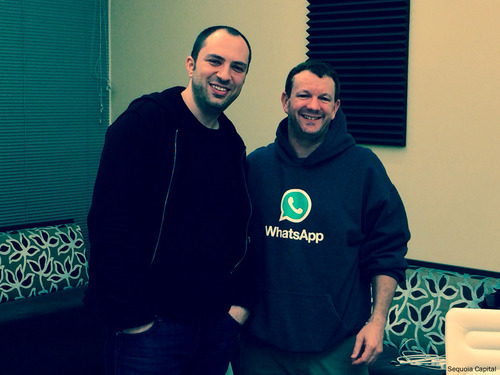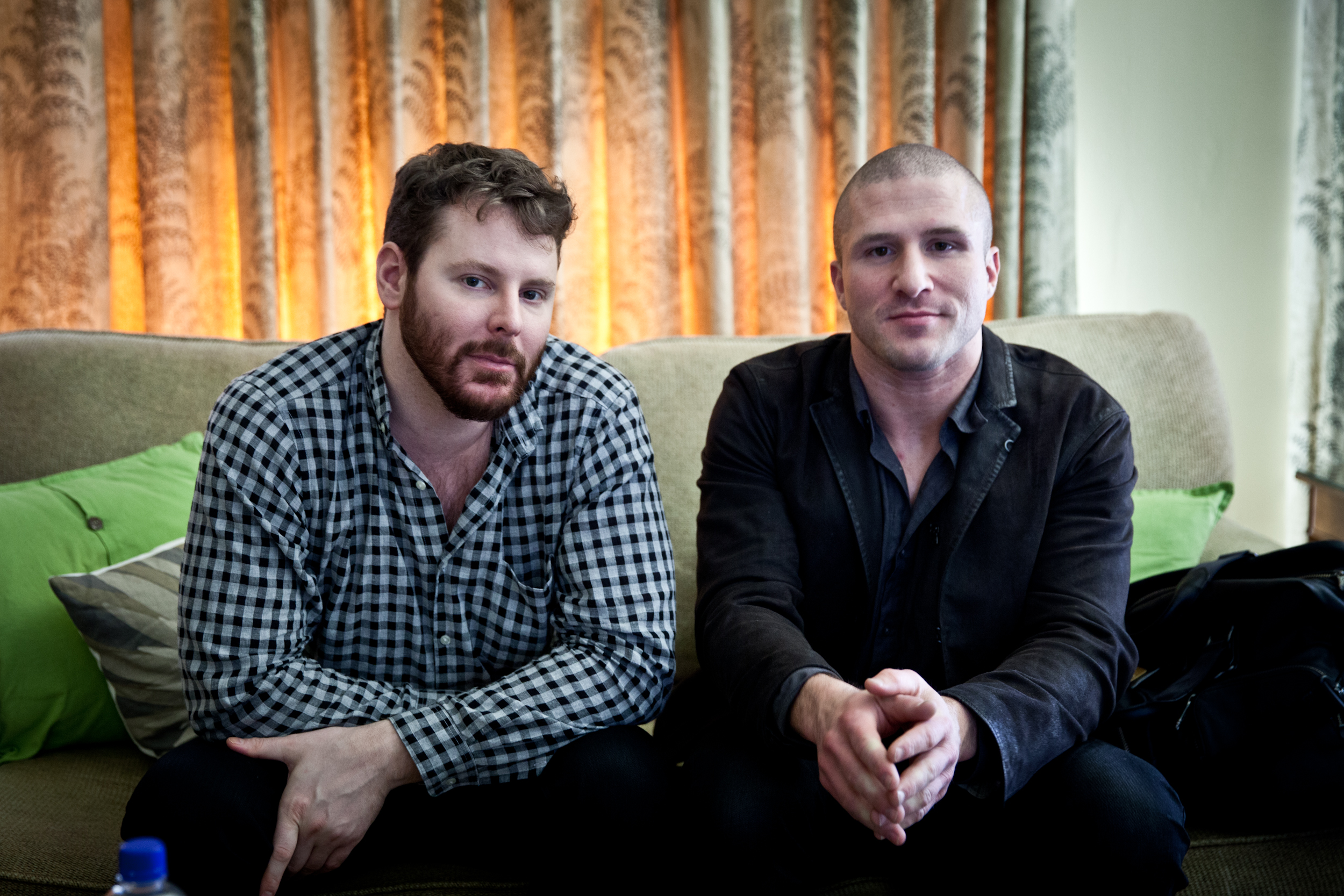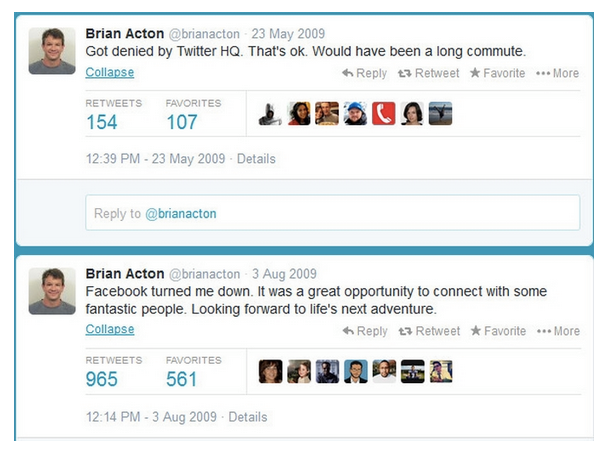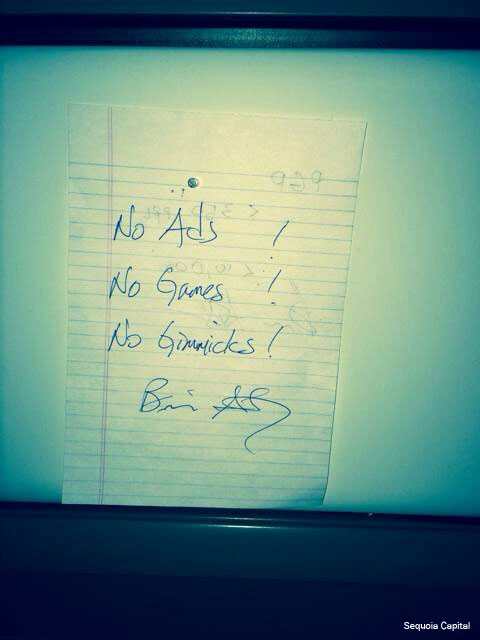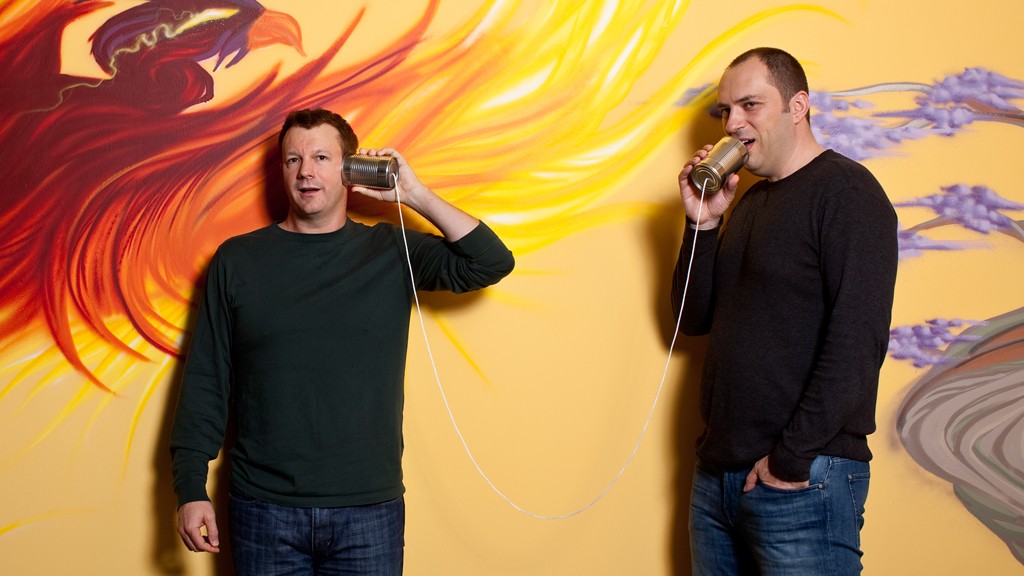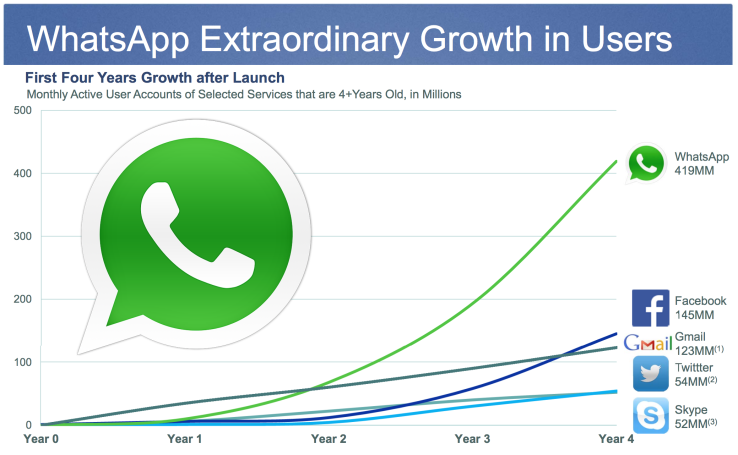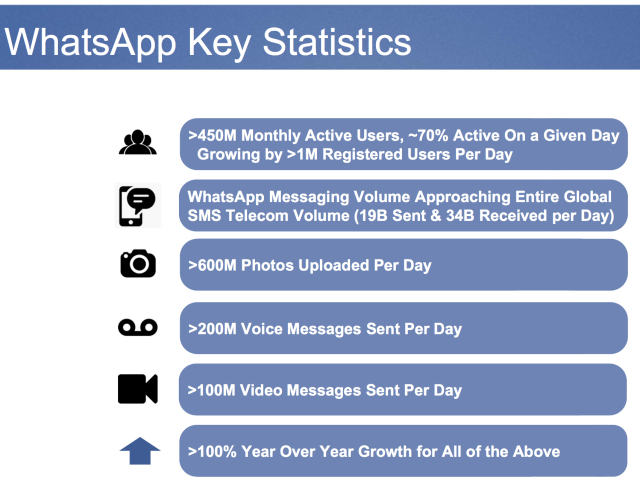[SHARE] From Zero To USD19 Billion: The True Story Behind WhatsApp And Its Founders
From the moment they opened the doors at WhatsApp, Jan and Brian wanted a different kind of company. While others sought attention, Jan and Brian shunned the spotlight, refusing even to hang a sign outside the WhatsApp offices in Mountain View. This is their story.
Facebook has bought messaging app WhatsApp for RM67 billion (US$19 billion) in cash and stock. You can read about it all, here:
The story behind WhatsApp's massive success is one of perseverance in spite of hardship and rejection. This is the story of Jan Koum and Brian Acton.
When he was living on welfare, Jan Koum's family collected food stamps a couple of blocks from the unmarked Mountain View office that now houses his messaging company, WhatsApp.
Koum, who Forbes believes owns 45% of WhatsApp and thus is suddenly worth $6.8 billion — was born and raised in a small village outside of Kiev, Ukraine, the only child of a housewife and a construction manager who built hospitals and schools.
forbes.comHis house had no electricity or hot water. His parents rarely talked on the phone in case it was tapped by the state. It sounds bad, but Koum still pines for the rural life he once lived, and it’s one of the main reasons he’s so vehemently against the hurly-burly of advertising.
A Forbes report notes:
Koum and his mother immigrated to Mountain View, a result of the troubling political and anti-Semitic environment, and got a small two-bedroom apartment though government assistance. His dad never made it over.
forbes.comKoum’s mother had stuffed their suitcases with pens and a stack of 20 Soviet-issued notebooks to avoid paying for school supplies in the U.S. She took up babysitting and Koum swept the floor of a grocery store to help make ends meet.
forbes.comBy 18, Koum, a troublemaker at school, taught himself computer networking by purchasing manuals from a used book store
He joined a hacker group called w00w00 on the Efnet internet relay chat network, squirreled into the servers of Silicon Graphics and chatted with Napster co-founders Sean and Fanning.
He enrolled at San Jose State University and moonlighted at Ernst & Young as a security tester. In 1997, he found himself sitting across a desk from Brian Acton, Yahoo employee 44, to inspect the company’s advertising system.
Recalling their first interaction when they first met in Yahoo!, Acton says, "You could tell he was a bit different" "He was very no-nonsense, like 'What are your policies here; What are you doing here?'"
It turned out Koum liked Acton’s no-nonsense style too: “Neither of us has an ability to bullshit,” says Koum. Six months later Koum interviewed at Yahoo and got a job as an infrastructure engineer.
forbes.comWhen Koum’s mother died of cancer in 2000 the young Ukrainian was suddenly alone; his father had died in 1997. He credits Acton with reaching out and offering support.
“He would invite me to his house,” Koum remembers. The two went skiing and played soccer and ultimate Frisbee.
forbes.comOver the next nine years the pair also watched Yahoo go through multiple ups and downs. Acton invested in the dotcom boom, and lost millions in the 2000 bust.
In September 2007 Koum and Acton finally left Yahoo and took a year to de-stress, traveling around South America and playing ultimate frisbee. Both applied, and failed, to work at Facebook. “We’re part of the Facebook reject club,” Acton says.
In 2009, amidst the aftermath of the financial crisis, Koum, with the financial help of his mentor Acton, went on to write code for a messaging service. They wanted it to be the biggest cross-platform messenger in the world.
According to legend, WhatsApp co-founder and CEO Jan Koum came up with the idea for his company in early 2009 after his gym banned the use of cell phones. Koum became annoyed at missing calls during his workout and, being an engineer, decided to create a solution.
Koum almost immediately chose the name WhatsApp because it sounded like “what’s up,” and a week later on his birthday, Feb. 24, 2009, he incorporated WhatsApp Inc. in California.
forbes.comThe following month after a game of ultimate frisbee with Acton, Koum grudgingly admitted he should probably fold up and start looking for a job. Acton balked. “You’d be an idiot to quit now,” he said. “Give it a few more months.”
Five years after launch, WhatsApp is among the world's most popular and profitable phone apps
On a typical day in January, more than 18 billion messages were sent through its network, two billion more than in early December -- and a whisper away from the 19.5 billion sent daily via SMS.
Because some messages went to multiple recipients, that amounted to 36 billion daily messages received. Some 450 million people are active monthly users, up from 400 million in December, 300 million last July, and 200 million last January.
That "active" sets WhatsApp apart from many big-number competitors: as Koum huffed on Twitter last May:
"Comparing total registered users and active users is like comparing Ferrari 250 GTO with a skateboard."
So, how did a non-technical founder build a product that, at current growth, is on track to cross a billion users early next year?
Pinned to Koum's desk in his open-plan office is a handwritten note signed by his cofounder and early investor, Brian Acton: "No ads! No games! No gimmicks!"
It serves as a daily reminder of their commitment to stay focused on building a pure messaging experience. This discipline is reflected in WhatsApp’s unconventional approach to business.
Speaking about their company, Acton says, "We're the most atypical Silicon Valley company you'll come across"
"We were founded by thirtysomethings; we focused on business sustainability and revenue rather than getting big fast; we've been incognito almost all the time; we're mobile first; and we're global first."
He and Koum, he adds, are "the yin and yang -- I'm the naïve optimist, he's more paranoid. I pay attention to bills and taxes, he pays attention to our product. He's CEO. I just make sure stuff gets done."
Koum and Acton ignored conventional wisdom. Rather than target users with ads, an approach they had grown to dislike during their time at Yahoo, they chose the opposite tack and charged a dollar for a product that is based on knowing as little about you as possible.
WhatsApp does not collect personal information like your name, gender, address, or age. Registration is authenticated using a phone number, a significant innovation that eliminates the frustration of remembering a username and password. Once delivered, messages are deleted from WhatsApp’s servers.
It’s a decidedly contrarian approach shaped by Jan’s experience growing up in a communist country with a secret police. Jan’s childhood made him appreciate communication that was not bugged or taped.
When he arrived in the U.S. as a 16-year-old immigrant living on food stamps, he had the extra incentive of wanting to stay in touch with his family in Russia and the Ukraine. All of this was top of mind for Jan when, after years of working together with his mentor Brian at Yahoo, he began to build WhatsApp.
The success didn't change Koum or Acton. When a journalist visited the company's headquarters in July 2012, the Ukranian Koum was barefoot and Acton was sporting flip-flops.
The two were also described as somewhat obsessive about maintaining their privacy and needed some cajoling to pose for a picture. When WhatsApp won an award at the Mobile World Congress in Barcelona that year, Kuom sent a marketing exec in his place. "I was at a meeting," he explained.
Now that WhatsApp has netted a much bigger prize, don't expect Koum or Acton — both of whom are around 40 — to bask in the limelight. And whatever you do, don't call Koum the e-word.
As he tweeted back in May 2012, "next person to call me an entrepreneur is getting punched in the face by my bodyguard. Seriously."
Here's an infographic that shows WhatsApp's user growth compared to Facebook and others:
